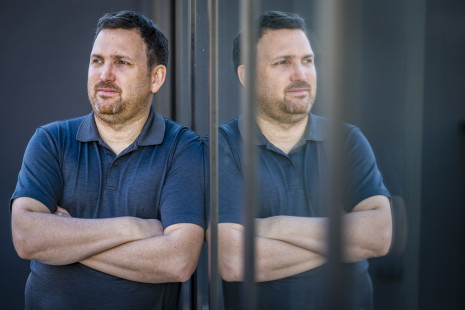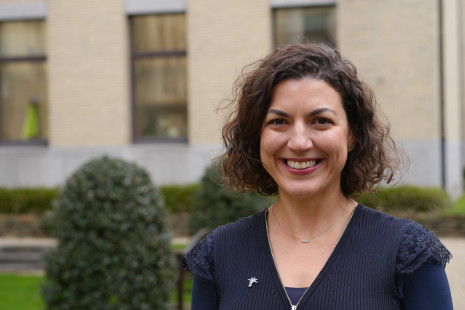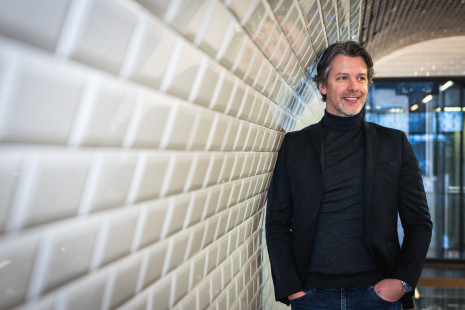Ives Agemans
CEO & founder Cyborn
Yes, there’s an XR section at the festival where we’ll showcase what MR can do. It’s an amazing opportunity and also gives us artistic recognition. Our strength lies in pushing hardware to its limits and producing graphically rich, high-end visuals.
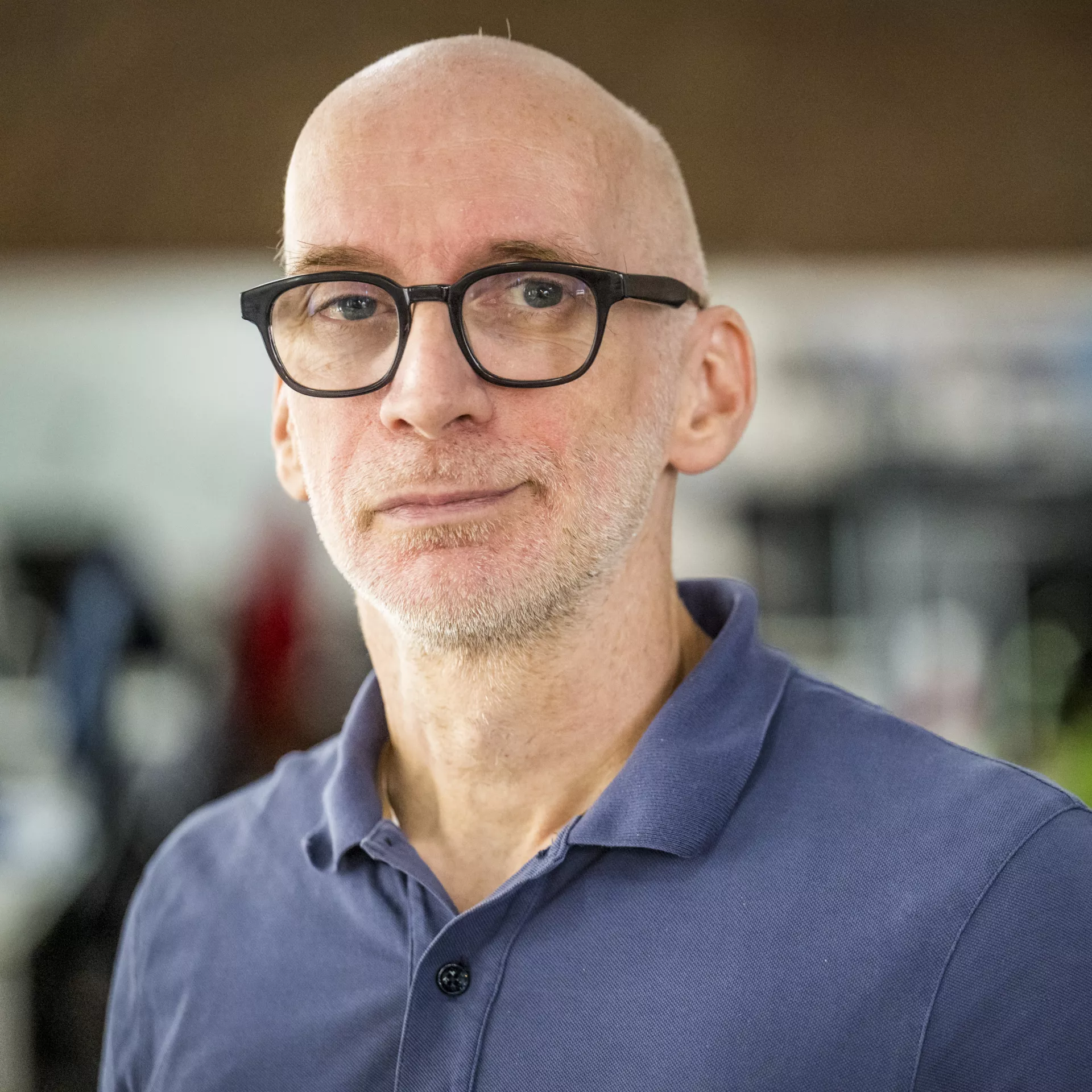
“Our specialty? Pioneering mixed reality, powered by Meta.”
Behind a gate in Borgerhout, part of Antwerp, lies a former gin distillery, now transformed into a creative hub with a motion capture studio, cinema room, and offices. Here, dozens of Cyborn employees work on globally successful games. Founder Ives shares his journey and vision.
Hi Ives, let’s start at the beginning. How did it all start?
“After studying graphic design and illustration, I somewhat naively joined a company that wanted to develop a video game. That game was never completed, it was too advanced for the available technology. But I used the opportunity to dive deep into 3D. Not long after, in 1998, I founded Cyborn and started working in the film industry. One thing that’s remained constant: my drive to explore and understand the latest technology from the inside out. That often meant we were even a bit too early for the market.”
Too early? How so?
“Innovation is essential in this industry. You have to embrace new technology and start experimenting with it, even if no clients or investors are on board yet. That early exploration gives you a long-term advantage.”
Eventually, you transitioned from film back to games?
“That’s right. We worked on several film projects, including a feature film co-produced with Sagafilm from Iceland, though almost the entire production was handled in-house by Cyborn. Still, the film business remains tough. The burn rate, the speed at which you spend money before making a profit, is extremely high. By then, we had hired people trained in game development and had built up experience creating apps for businesses. On one hand, we focused on services like Mocap, animation, and VFX for mainly big game companies, like Horizon Forbidden West, an AAA Sony game, but also smaller and local projects. On the other hand, we started creating our own VR games, a more accessible market with smaller budgets.”
Is that how Meta came into the picture?
“Immersive tech evolves in waves. Meta began investing in VR with a long-term vision: to eventually deliver AR glasses that could replace smartphones. First came PC-tethered headsets. Then, mobile VR, like Quest 2 and 3. Our first game, ‘Hubris’, pushed those early platforms to their limits. With ‘Wall Town Wonders’, we explored the mixed reality capabilities of Quest 3, and Meta supported the project financially. It became both a game and a showcase of MR’s potential.”
How does a collaboration like that begin?
“At Gamescom in Cologne, the world’s largest gaming expo. It’s not just for consumers, there’s also a major professional track. At our booth, representatives from Oculus, Meta’s XR division, approached us. That first meeting turned into an ongoing collaboration, and eventually, Meta offered financial support. The partnership grew naturally as they saw our work aligning with their vision for immersive content.”
Are you already working on another game for Meta?
“Yes, but I can’t say much about it (smiles). After conducting a comprehensive internal study on XR, Meta decided to shift their approach, focusing on fewer, high-quality studios to drive the next major step toward AR. Cyborn is fortunate to be one of those selected partners. We’ve just begun production on our next title with Meta’s support, and we believe it has everything it takes to be successful.”
Speaking of success, you were selected for the Venice Film Festival?
“Yes, there’s an XR section at the festival where we’ll showcase what MR can do. It’s an amazing opportunity and also gives us artistic recognition. Our strength lies in pushing hardware to its limits and producing graphically rich, high-end visuals.”
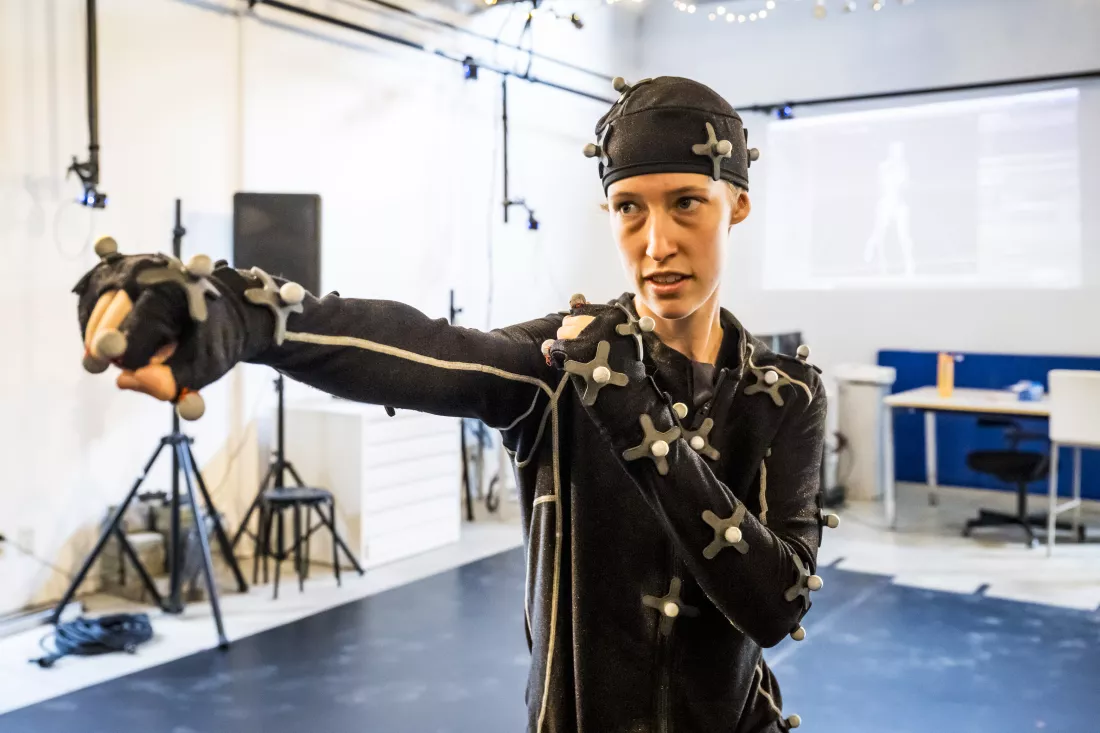
You also offer services to businesses. Why is that?
“We want to stand on two strong legs: games and services. Games can bring in large contracts, but development cycles are long, and revenue usually gets reinvested into the next project. We also offer services that leverage the expertise we’ve built over 27 years. Think XR installations for museums, training modules, immersive presentation tools, or VR experiences that help children prepare for surgery. We’re always open to working with new companies.”
The potential seems enormous. How do you spread the word?
“Honestly? Not enough. We should focus more on sales. The upside is that we’ve already developed a lot of the tech ourselves, so if a client asks for something, we can often just copy and adapt it, making development fast and cost-effective. It would be great if the city of Antwerp, for example, could connect us with interested companies through an inspiration day. Most of our clients are international, but we’d love to work more locally.”
Do you find it easy to hire talent?
“Yes, pretty easy. We have low turnover, and the engineers we hire are all deeply passionate about games. They might earn more elsewhere, but here they get to follow their passion. We also get interns from abroad who love Antwerp by the way. We always take our international clients into the city, its charm never fails.”
How’s your relationship with other creative studios in Belgium?
“Very good. We often collaborate, and some of them make use of our facilities. Belgium has a strong game development scene, with lots of talented developers and excellent training programs, especially the Digital Arts & Entertainment course in Kortrijk, which is internationally renowned.”
How do you see the future of the gaming industry?
“Current headsets are still a bit bulky, though the comfort has greatly improved. In the future, I think we’ll move to lightweight smart glasses that let you do everything a smartphone can: video calls, calendar management, while still seeing the real world around you. Mixed reality is intuitive and doesn’t cause motion sickness like VR sometimes can.”
And the future of Cyborn?
“Bright. As a Belgian company, we have to deliver top quality, we can’t compete on labor costs, so excellence and innovation are our survival strategy. We aim to grow both in games and services and become an international benchmark. All from our home base in Antwerp. Why? I love this city.”
Before we leave, we get to experience the captivating mixed reality of ‘Wall Town Wonders’ for ourselves. The world that opens up feels both real and magical. “Wonderful,” photographer Frederik says, and we couldn’t agree more.
